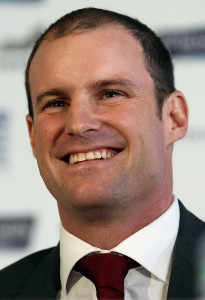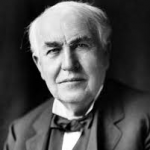Back in the spring, I was asked by Jim Wilkinson, the organiser of FutureScape, to speak at the event, which took place last week. Great, I thought, mentally running through which projects I might talk about.
“The title of your talk is ‘The Way Forward’ ” he said.
“That sounds very grand, what does it mean?”
“Well, last year you spoke about marketing; everybody’s done that now and they want to know what to do next” Quiet groan to self.
However, when I started to think about this, it occurred to me that all small businesses face a similar challenge, and it is one that all the self-help management books don’t really talk about.
Businesses start with an idea. Perhaps it is one you have carried around with you for years. Maybe you are pushed into it by redundancy, or maybe you’re just a brilliant entrepreneur. You nurture this idea, feeding it with time and money. You have great hopes for it, but somehow it stays stubbornly stunted. Why is this? Let’s look at the reasons and explore some possible solutions.
Not enough work. Wrong sort of work
What most people complain about is simply not enough work. Or perhaps the wrong sort of work? Do other people seem to get all the best jobs – how did they get that?
Well, one answer is to diversify. This could be a matter of selling a different type of product to the same clients – maybe offer maintenance to your existing clients. Alternatively it maybe lateral expansion into a new market – schools or care homes for example.
The opposite might also be a good strategy. If you find yourself chasing round after lots of small projects with no time to think, perhaps you need to focus. Richard Reed, co-founder of Innocent Smoothies put this brilliantly when asked about singularity of purpose and focus: ‘If it’s too broad, there’s too little focus. But if it’s too small you might not give yourself enough money to grow. So there is a trick to working out what you’re in the business of. You have to work out exactly what it is you’re doing, and do that better than anyone else.’ I must confess to not being the best person at this – I tend to get dragged in to distractions too easily. But I do understand what my core market is, and we are very competitive in that market.
It may be you need to do more effective marketing. Once you’ve got your message and market clear, the starting point should certainly be your website. This may sound obvious, but it is amazing how many small businesses ignore it – out of date, unloved websites are positively counter-productive; they actually put people off. Use quieter times to rethink your marketing material. During a downturn in business a few years ago, I spent the time putting together some A4 landscape format sheets to make a digital (or print) brochure: four or five general sheets, then half a dozen or so case studies. Over the last few years, we have gradually added to these until we have about 80 or so sheets which we can choose from to make up a brochure – although we still don’t vary from 12-16 sheets in any single brochure. Finally don’t ignore networking and social media. These frequently are slow burners in terms of marketing – they often produce leads in unexpected ways.
Finance
 Do you have too much work, not enough money? It’s a common enough problem with smaller businesses. There is a simple answer to this – put your prices up. It is a straightforward way of slimming down the workload and making more money at the same time. Often, it is surprising how the market reacts to this. Consumers do not always equate lower prices with value as much as they do higher prices with quality. In a market for luxury goods and services, the latter is often a bigger driver. If you can’t put your prices up, then look at your costs – can you buy more cheaply? Could you put more pressure on your suppliers for price? Or trim your overheads – how much plant do you really need? Could it be hired in?
Do you have too much work, not enough money? It’s a common enough problem with smaller businesses. There is a simple answer to this – put your prices up. It is a straightforward way of slimming down the workload and making more money at the same time. Often, it is surprising how the market reacts to this. Consumers do not always equate lower prices with value as much as they do higher prices with quality. In a market for luxury goods and services, the latter is often a bigger driver. If you can’t put your prices up, then look at your costs – can you buy more cheaply? Could you put more pressure on your suppliers for price? Or trim your overheads – how much plant do you really need? Could it be hired in?
Maybe cash flow is the problem. Most SMEs are pretty awful at credit control, especially in the design sector. It is almost as if they are a bit embarrassed about asking for money. Be proud of what you do and don’t be afraid to ask for payments regularly and on time. If you go out for a meal, the restaurant doesn’t say ‘That’s fine, drop by tomorrow and pay; or whenever you like really.’ If credit control is a serious problem, then one solution that some businesses use is invoice factoring. It can be expensive, but is often used effectively by enterprises that are expanding quickly. Another solution is simply to build up a cash cushion that allows you to ride out the vagaries of the market and still take advantages of opportunities as they arise.
Could you expand if you had just a bit more money? The obvious first stop is family. This has been the favoured way of funding businesses for hundreds of years. It can provide solid funding from somebody who trusts and understands you and is unlikely to foreclose without notice. Failing that, you might think about Asset based lending. This is bascally borrowing against some asset as surety, including intangibles such as future profits. You can find good articles about this at Fresh Business Thinking. Don’t write off the banks either. Since the government has been encouraging banks to lend to smaller businesses (with schemes like Funding for lending, British Business bank, Enterprise Finance Guarantee) they are quite keen to lend money, only if of course they see you as a good risk. One solution that we sought was essentially selling of part of the business to grow the whole. This allows other people to come in and re-invigorate the enterprise and often provides a much needed cash input. Branson has expanded his empire in this way – with almost every step; he sells part of his existing business to fund the expansion of a new enterprise.
Not enough you
Perhaps we get to the crux here – this is why most businesses plateau. They expand rapidly while they are based on one owner, but eventually that person runs out of enough time and energy to grow the business further. The solutions to this are sometimes obvious, but also sometimes counter-intuitive. I found that getting away from the coal-face often paid dividends. 
Spending time with family and friends for a while often allows you to recharge and focus. Equally, instead of working, find inspiration! Go to an industry event, an exhibition or a networking opportunity. This should be a real driver in your business allowing you to absorb new ideas and move forward.
 To really move the business on, you have to look at how you relate to others in the business and what the culture of the company is. You need to be open in the way you talk to others. I always find that talk to everyone as your equal is a good mantra – and this cuts both ways. Don’t undervalue yourself but also don’t patronise others. And you won’t always be right – Andrew Strauss put this well in a recent interview: “There’s a fallacy that strong leadership is about being right all the time. Actually strong leadership is admitting you don’t have all the answers sometimes, and encouraging other people to think a bit as well. I always think probably the best leaders are those that understand their own strengths and weaknesses the best and don’t pretend to be all things to all people”. I have a friend in Spain who runs a large language school. She runs a session with her staff each week called ‘Challenge Jill’ in which they can ask her what they want and question any of her decisions.
To really move the business on, you have to look at how you relate to others in the business and what the culture of the company is. You need to be open in the way you talk to others. I always find that talk to everyone as your equal is a good mantra – and this cuts both ways. Don’t undervalue yourself but also don’t patronise others. And you won’t always be right – Andrew Strauss put this well in a recent interview: “There’s a fallacy that strong leadership is about being right all the time. Actually strong leadership is admitting you don’t have all the answers sometimes, and encouraging other people to think a bit as well. I always think probably the best leaders are those that understand their own strengths and weaknesses the best and don’t pretend to be all things to all people”. I have a friend in Spain who runs a large language school. She runs a session with her staff each week called ‘Challenge Jill’ in which they can ask her what they want and question any of her decisions.
Listen to everyone: talent is everywhere. Ask people what they think; listen more than you speak and you may just find out what your people are capable of. Teams need nurturing. If you value your staff you will get more out of them and they will respect you. Andrew Strauss again: “Good leaders have empathy and care deeply about the people they’re leading. My philosophy is that if you care about them, they’re more likely to want to be led by you”.
Give back – this again is one of those counter-intuitive things. If you have achieved, give something back. Volunteer on a charity project, become a committee member in your professional or trade association, or become a school governor. Often these are self-affirming activities, and it can be great to use your brain for something other than work! They can also be good networking opportunities.
Despite all this, things go wrong. But don’t be afraid to fail. Failure is part of the learning process. I think almost everyone has some event from their childhood seared into their brain, some occasion when they failed. Failure is how we learn, and avoiding making the same mistake again is a huge motivation. Many great thinkers and entrepreneurs have remarked on this:
 Coco Chanel, fashion designer
Coco Chanel, fashion designer
“Success is most often achieved by those who don’t know that failure is inevitable.”

Richard Branson, entrepreneur
“You don’t learn to walk by following rules. You learn by doing, and by falling over.”

Henry Ford, founder of the Ford Motor Company
“Failure is only the opportunity to begin again more intelligently.”

Winston Churchill, UK prime minster
“Success is not final. Failure is not fatal. It is the courage to continue that counts.”

Drew Houston, Dropbox co-founder and CEO
“Don’t worry about failure. You only have to be right once.”

Thomas Edison, inventor and businessperson
“I have not failed. I have just found 10,000 ways that won’t work.”
“Many of life’s failures are made by people who did not realise how close they were to success when they gave up.”

J.K. Rowling, author
“Failure is so important. We speak about success all the time. It is the ability to resist failure or use failure that often leads to greater success.”
Finally and perhaps most importantly – surround yourself with good people. Stelios Haji-Ioannou (the founder of EasyJet) once said that he always surrounds himself with positive people – negativity is a killer. But there is not point in surrounding yourself with great people if you are not going to share the responsibility – and the glory – with them.
 I’d like to finish with a quote from Julian Dunkerton, founder of SuperDry: “Never think of yourself. It’s about your staff, your customer, and your business. You’re tenth on the list. If you’re thinking that you are doing it for a Porsche then forget it, because you’ll never make the right decisions to build the business.”
I’d like to finish with a quote from Julian Dunkerton, founder of SuperDry: “Never think of yourself. It’s about your staff, your customer, and your business. You’re tenth on the list. If you’re thinking that you are doing it for a Porsche then forget it, because you’ll never make the right decisions to build the business.”



